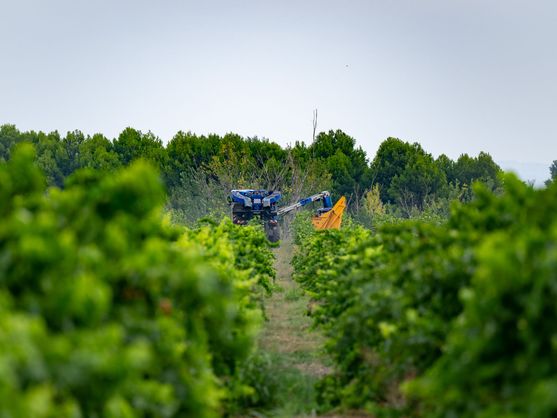
In 2025, Andalusia’s wine industry is experiencing one of its most challenging seasons in decades. Widespread crop losses are linked to the active spread of a fungal disease known as mildiu. Depending on the area, farmers have lost between a third and eighty percent of their grape harvest, resulting in severe economic consequences for thousands of families.
The pathogen responsible for such significant damage affects all green parts of the vine: leaves, clusters, shoots, and tendrils. Mildiu first appeared in Europe in the 19th century, when new plant diseases were introduced to the region through imports from North America. Since then, the fungus has remained a constant threat to grape growers, especially in warm and humid conditions.
This year, weather conditions in Andalusia have been particularly favorable for the development of the infection. Following heavy rains and a rise in temperatures above 25 degrees, the fungus began to spread rapidly across the vineyards. Distinctive yellowish spots appeared on the leaves, with a white coating made up of spores on the underside. If the disease is not stopped in time, the entire crop may be lost.
Wineries in different parts of the region have faced varying degrees of damage. In the Serranía de Ronda area, for example, some grape varieties suffered more than others. Muscat losses amounted to about 60%, while the tintilla variety lost 40%. At the same time, Pinot Noir, despite its preference for humid climates, proved more resilient and lost only a tenth of its crop. Experts note that timely pruning and ensuring good vine ventilation help reduce the risk of infection.
In other provinces, such as Cádiz and Málaga, the situation also remains difficult. In some estates, palomino losses have reached 20%, whereas a year ago there were no such issues. Farmers note that this season, in addition to the spread of disease, they faced adverse weather conditions—strong winds and prolonged rains—which complicated fieldwork and the timely application of protective treatments.
To combat mildew, copper-based preparations, such as Bordeaux mixture, are traditionally used, as well as modern fungicides containing various active ingredients. However, due to restrictions on copper use introduced by the European Union, growers are forced to look for alternative protection methods, including biological agents and agrotechnical approaches. These include removing excess leaves, proper spacing between vines, and avoiding leaf irrigation.
Experts believe that this season will serve as an important lesson for the entire winemaking sector of Andalusia. The combination of climate change and an increase in diseases calls for new approaches to crop protection and adaptation to changing conditions. The year 2025 is already being called one of the most challenging for local grape growers.












